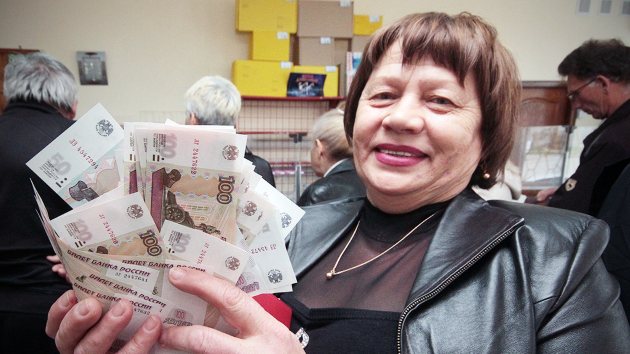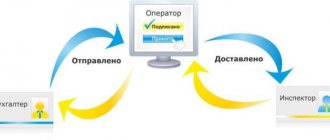Working pensioners are people who receive security in the form of pension contributions and at the same time are employed and have a salary.
When a person reaches retirement age, he or she is faced with the question of what to do: stay and continue working or retire. In both cases, both positive and negative sides predominate. Retirement involves the completion of professional activity and the transition to a new stage - quiet time with family , raising grandchildren and doing what you love. If a retired person decides not to stop working, this in turn helps to always stay in good shape, others will need you, there will be a desire for development and will give meaning to life.
But, in many cases, pension payments for Russian citizens are such that people are forced to continue working . Due to this factor, most people have to work part-time or consider other methods of earning money. Everyone decides for themselves what would be the best solution for them. Let's look at the main pros and cons for working retirees, which are presented below.
Is it possible for Russian pensioners to work?
People who have reached retirement age often do not have a clear idea of how realistic it is to combine work and retirement. However, a working pensioner has every legal basis to receive both a salary and financial security for old age (service).
Dear readers! The article talks about typical ways to resolve legal issues, but each case is individual. If you want to find out how to solve your particular problem , contact a consultant:
8 (800) 700 95 53
APPLICATIONS AND CALLS ARE ACCEPTED 24/7 and 7 days a week.
It's fast and FREE !
However, it must be taken into account that a working pensioner is automatically deprived of the social pension supplement. Even if the pension itself does not reach the valuation of the “consumer basket” with a minimum set of goods and services.
Additional payment to working pensioners is due only at the expense of the insurance pension. These contributions to the Pension Fund are paid by employers and together form the citizen’s pension savings.
Pros and cons of working in retirement
Each retiree needs to decide for himself whether he will continue to work or not. To settle this issue once and for all, we suggest that you familiarize yourself with the pros and cons of working in retirement from the table below:
| pros | Minuses |
| Maintaining familiar social connections and professional circle of contacts. | Less time for everyday life, children and grandchildren, as well as for proper rest and favorite entertainment. |
| Improved adaptation to the role of a pensioner and a new way of life due to the fact that the status of an employee has not been lost. | Poor health due to overexertion at work. |
| Maintaining physical and mental activity. | Social benefits are not included in pensions. |
| Maintaining income levels at a higher level. | Pensions are not indexed. |
What can an old-age pensioner do?
Based on the norms of modern legislation and the practice of enterprises, a pensioner can choose not from two, but from five possible options:
- Leave work immediately upon reaching retirement age, apply for and receive a pension.
- Apply for and receive a pension, but do not leave work until the end of the contract.
- Continue to work under the current contract, but temporarily give up your pension in order to increase it in the future.
- Apply for and receive a pension, work until the end of the current contract, so it is possible to issue a new contract under new conditions.
- Give up your pension while you work, work until the end of the contract, ask for the next one.
Features and nuances
Pensions are provided not only to pensioners, but also to some other categories of citizens; in addition, the employed population is declining. The state encourages people to voluntarily delay their retirement by increasing their bonus rates, and at the same time wants to save money by eliminating the indexation of payments to working elderly people.
Survivor benefits for workers
So, pensions are assigned not only to elderly people. There is also a fixed survivor benefit. These funds are received by disabled close relatives of the deceased who are dependent on him until the moment of death.
Who can count on a survivor's pension:
- minor family members;
- husband/wife, or parent or grandparent of any age and regardless of ability to work;
- a child of the deceased who has reached eighteen years of age or other adult family members, provided that they are caring for close relatives of the deceased benefactor who are under 14 years of age and not working;
- father and mother or husband/wife who managed to live until retirement age or are disabled and were supported by the deceased;
- grandparents of a deceased breadwinner who managed to live until retirement age and have no one else to provide for them.
Working citizens are not paid a survivor's pension, although they have the opportunity to earn money, eat normally and independently resolve housing issues.
If a citizen receives a survivor’s pension and is officially employed, he must submit an application to the Pension Fund for renunciation of the pension . Otherwise, he will face the law. What punishment awaits him? You will have to compensate the Pension Fund for damages in the prescribed amount.
Premium odds for deferred exit
Having reached retirement age, a citizen has the right to delay his retirement for at least a year and continue to work. In case of a positive decision, he will be accrued bonus coefficients based on each year of such deferment, but not more than for ten years .
Accordingly, the deferment period determines the amount of the future pension. Information on the compliance of the premium coefficient and the deferment period can be found in Appendices 1 and 2 to the Federal Law “On Insurance Pensions”.
Find out who is paying the municipal pension in 2020. Read about the conditions for retirement of state and municipal employees here.
In Russia there is a tendency towards an increase in the number of people of retirement age, despite the fact that the employed population is declining. To stabilize the economy, the state is forced to interest people in retiring later. Although not all of our fellow citizens live to see their pension provision. At this point, let everyone decide for themselves how to proceed: make payments or wait for “better times.”
Indexing
In 2016, due to the financial crisis and the budget deficit of the Pension Fund in the Russian Federation, the indexation of guaranteed payments to working pensioners was canceled . Now they are not provided with an annual increase in the size of their insurance pension, taking into account rising prices - one of the ways to protect against inflation.
What explains this step? Busy retirees have additional sources of income and can weather rising prices. In addition, a number of experts are confident that this measure will save the Pension Fund’s expenses. However, the fact of termination of work will entail a revision of the pension amount in terms of indexation.
Let us remind you that from February 1, 2020, according to Decree of the Russian Government of January 19, 2020 No. 36, the indexation coefficient is 1.054.
Dismissal due to vacation
Once a person has reached retirement age, he can leave work on his own initiative due to retirement. Article 80 of the Labor Code of the Russian Federation states that an application for dismissal at the request of an employee in connection with retirement is grounds for early termination of an employment contract without two weeks of work .
An “initiative” employer does not have the right to fire a pensioner. Except for the reasons specified in Article 81 of the Labor Code of the Russian Federation. Upon retirement from old age, a person has the right to receive similar payments as other employees; for example, the employer is obliged to compensate him for unused vacation.
Are there benefits to continuing to work after retirement?
What kind of pension will working pensioners receive? Does it make sense to work after reaching retirement age? Let's try to understand these concepts.
In order to understand whether it makes sense to work, you need to look at what kind of salary a pensioner will receive if he receives his pension. Here a lot depends on the coefficient of pension points.
If we assume that in 2020 a person was assigned a pension of 10.5 thousand rubles, and his salary was 20 thousand rubles, his indexation coefficient in 2020 was 4%, respectively, his pension would be 420 rubles more than the salary he will receive.

A working pensioner loses part of his payments after dismissal.
In 2020, the coefficient for the same indicators would have been 5.4%. Accordingly, the pensioner loses almost 590 rubles. In 2 years, in this way, a person will receive less than 12,000 rubles. After dismissal, a working pensioner, unfortunately, loses part of his payments.
It makes sense to work if the salary that a person received during the same time is clearly higher than the lost pension. On the other hand, a person has earned his pension through hard work over many years, so this kind of reduction in the coefficient and withholding part of the pension is not entirely justified. The government promised that in a few years it would return to the issue of indexing pensions for pensioners, but whether this will happen is unknown.
Conditions for increasing pensions for working citizens
Among pensioners, there are those who, after retiring, do not stop working. And there are many of them. Employers make contributions to compulsory pension insurance for them, which are taken into account by the Pension Fund during the annual (from August 1) recalculation of the amount of the insurance pension. The longer the length of service and the insurance premiums paid, the higher the person’s pension:
| Conditions for increasing pensions for working pensioners | Bonuses |
| Funded pension - no Insurance - 16% of compulsory pension insurance contributions | No more than 3 |
| Funded pension - 6% Insurance - 10% | No more than 1.875 |
Pension savings for working citizens increase every twelve months from the date of the last recalculation.
Recalculation formula
What is taken into account when recalculating the pension of a legally working pensioner in the Russian Federation, when the amount of payments changes due to boosting the employee’s pension capital? All criteria are contained in the recalculation formula:
SPst = SPstp + (IPKi / K / KN x SPK)
Where:
| Abbreviation | Decoding |
| SPst | Insurance pension |
| SPstp | The amount of the insurance pension as of the last day of July of the current recalculation year. |
| IPKi | The amount of bonuses that are accrued both for the period of work and in the case of certain types of “downtime” on January 1 of the current recalculation year. |
| SPK | The cost of one pension coefficient per day, from which the amount of the insurance pension is recalculated. |
| TO | Coefficient for determining the amount of the insurance pension, in accordance with Part 11 of Article 15 of the Federal Law “On Insurance Pensions”. |
| KN | The coefficient for determining the size of the old-age and disability insurance pension is equal to one, and for the loss of a breadwinner - the number of dependents, as of August 1 of the current recalculation year. |
Let us say once again that in order to receive a recalculation of the guaranteed payment, the pensioner must present a “white” (official) salary.
The amount of savings funds
The volume of the funded pension is regulated annually on the first of August, taking into account several factors. The total amount depends on:
- what was the amount of insurance premiums for the “assignment” of the funded pension;
- whether employer contributions and co-financing of pension savings were made, etc.
The formula that allows you to adjust the size of your funded pension:
NP = PN / T
Where:
| Abbreviation | Decoding |
| NP | Pension amount. |
| Mon | The amount of a citizen’s pension savings. |
| T | From year to year, payment terms are determined by a special Federal Law. Information for 2020 can be found here. |
How is a pensioner’s work experience calculated and what does the benefit consist of?
Women who have reached 55 years of age and men who have reached 60 years of age can retire if they have at least 15 years of experience. The value of the individual pension coefficient for such a person must be at least 30 points.
A person’s pension is calculated as follows: the value of each pension point is multiplied by the number of these points, and a fixed payment is added to it. The number of points a person will receive depends on the size of his salary, as well as any additional payments.
The value of each pension point is published on the Internet and is established by Federal Law. A fixed payment is an amount that is fixed by law; last year it was 4,805 rubles.

The more points, the higher the pension accordingly.
Additional points can be obtained for caring for the first, second, third child, in the case of caring for a disabled person of group 1 or a person over 80 years old.
If it is difficult to figure out how many points you will be awarded, you need to contact the relevant authorities for help with calculations. This way, the pension after the dismissal of a working pensioner will be calculated correctly.
Will benefits for working pensioners be abolished?
Today, it is not legal to deprive a working pensioner of his pension. Although previously it was proposed to limit these payments to those who earn more than a million rubles annually. If these innovations became legal, then the state budget would probably be replenished with 145 million rubles within three years due to a proportional reduction in expenses.
Find out if pensioners pay land tax in 2020. When does pension payment stop and how can it be restored? Read the article.
The cost of a pension point for calculating a pension can be found here.
The project of the Russian Ministry of Finance described above dates back to 2015. So far he has not gained approval. Although it cannot be ruled out that it will be reviewed again in the near future.
Video: Latest changes in the Pension Fund of Russia
Attention!
- Due to frequent changes in legislation, information sometimes becomes outdated faster than we can update it on the website.
- All cases are very individual and depend on many factors. Basic information does not guarantee a solution to your specific problems.
That's why FREE expert consultants work for you around the clock!
- via the form (below), or via online chat
- Call the hotline:
- 8 (800) 700 95 53
APPLICATIONS AND CALLS ARE ACCEPTED 24/7 and 7 days a week.
Working pensioners
Conclusions and recommendations
- At the moment, the number of working pensioners continues to remain large.
- In many regions, the size of the pension remains small; in such a situation, it is profitable for pensioners to work.
- Due to the unstable economic situation in the world, many pensioners do not work, but remain officially employed. In this case, it is much better not to work officially and get indexed.
Author
Breslav Lev Andreevich
Your comments are very important and allow us to identify truly useful materials that are interesting to a wide range of people. Don't forget to rate publications and share your opinion with other site members.










